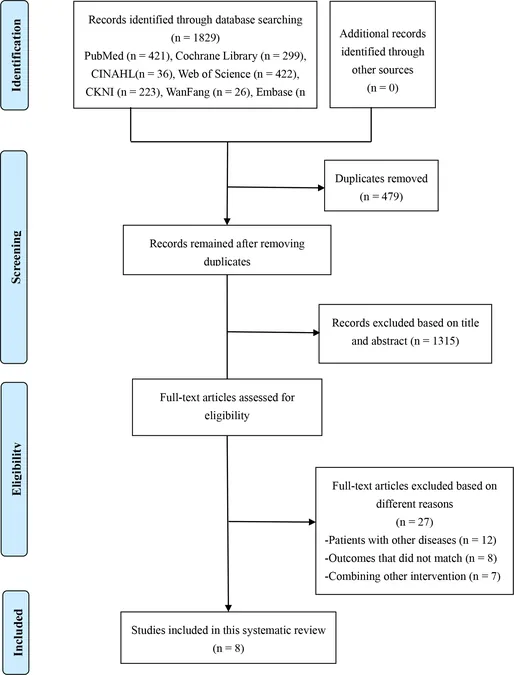
Can Exercise Revolutionize Cognitive Health in Diabetic Seniors? Groundbreaking Meta-Analysis Reveals Shocking Insights!
2024-09-19
In an era where diabetes is becoming an ever-increasing concern, a recent meta-analysis has provided compelling evidence on the impact of exercise on cognitive function in elderly patients suffering from type 2 diabetes mellitus (T2DM). Diabetes, described as a metabolic disease influenced by both genetic and environmental factors, currently affects an estimated 540 million individuals worldwide aged between 20 and 79, a number projected to soar to 640 million by 2030 according to the International Diabetes Federation (IDF).
With this demographic shift, the accompanying burden of diabetes on health systems is staggering, with estimated costs reaching over $2.1 trillion by the end of the decade. For elderly patients with T2DM, the stakes are even higher, as they are prone to vascular and neural damage leading to cognitive decline and increased risk of dementia. Those with T2DM face a startling 21% increase in the likelihood of mild cognitive impairment (MCI), a critical stage that bridges normal cognitive function and dementia.
This is where exercise intervention comes into play. The new meta-analysis aims to untangle the mixed results from previous studies regarding how physical activity affects cognitive health in diabetic seniors. While some trials have reported significant improvements, others have shown neutral or even adverse effects. To bring clarity, this study systematically analyzed randomized controlled trials focusing solely on exercise as an intervention, sidestepping other confounding factors.
The research involved a comprehensive literature search across multiple databases, leading to the inclusion of eight studies involving 747 patients. A notable finding demonstrated that structured exercise could markedly enhance cognitive function, with a standardized mean difference (SMD) of 0.79—a significant improvement suggesting that regular physical activity should be a cornerstone of managing cognitive health in older diabetic populations.
What’s the Secret Sauce?
While the exact mechanisms remain a mystery, studies suggest that exercise may enhance the body’s insulin signaling pathways and reduce inflammation, pivotal factors in cognitive health. Exercise also boosts levels of brain-derived neurotrophic factors, known to foster cognitive functioning. Essentially, physical activity acts like a superfood for our brain, promoting better executive function, and potentially mitigating the decline commonly experienced by older adults with T2DM.
Moreover, the analysis revealed that both aerobic and resistance training contribute positively to cognitive enhancement, especially when performed consistently—at least three times a week was found beneficial. Elderly individuals engaged in structured activity for about 105 to 300 minutes weekly reported better outcomes compared to their less active counterparts.
Exercise: The ‘Wonder Drug’ for Diabetic Seniors?
This study advocates for early and sustained intervention through exercise. Unlike traditional medications, which can have mixed side effects, physical activity is a safe and cost-effective strategy to combat cognitive decline. With diabetes-related cognitive issues predicted to escalate, it commands urgent attention from healthcare providers.
Researchers emphasize the importance of tailored exercise prescriptions and suggest integrating exercise programs into community health and rehabilitation settings. To optimize these interventions, they propose that healthcare providers create support networks involving caregivers and community resources to ensure consistent and effective exercise regimens.
Conclusion: A Call to Action!
With the impending diabetes crisis, empowering elderly patients with T2DM through exercise could be life-changing—not just for their physical health but also for their cognitive vitality. Therefore, it’s time for the medical community to prioritize exercise as a formidable tool in the fight against diabetes-related cognitive decline. This groundbreaking research calls for immediate action to implement structured exercise programs, granting seniors the chance to reclaim their cognitive health while combating the impacts of diabetes! Keep an eye on future studies as we continue to unravel the profound relationship between physical activity and cognitive resilience.

 Brasil (PT)
Brasil (PT)
 Canada (EN)
Canada (EN)
 Chile (ES)
Chile (ES)
 España (ES)
España (ES)
 France (FR)
France (FR)
 Hong Kong (EN)
Hong Kong (EN)
 Italia (IT)
Italia (IT)
 日本 (JA)
日本 (JA)
 Magyarország (HU)
Magyarország (HU)
 Norge (NO)
Norge (NO)
 Polska (PL)
Polska (PL)
 Schweiz (DE)
Schweiz (DE)
 Singapore (EN)
Singapore (EN)
 Sverige (SV)
Sverige (SV)
 Suomi (FI)
Suomi (FI)
 Türkiye (TR)
Türkiye (TR)